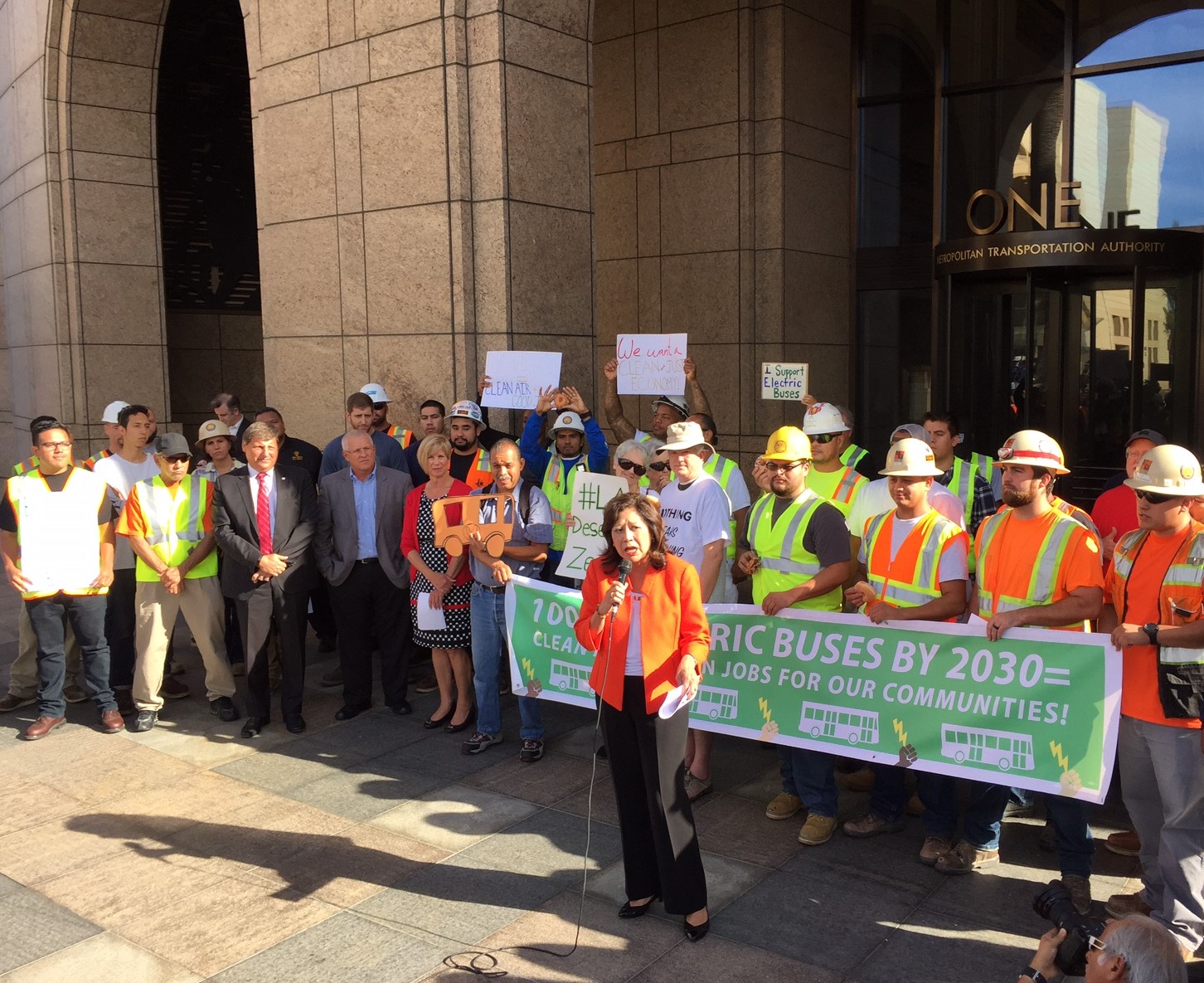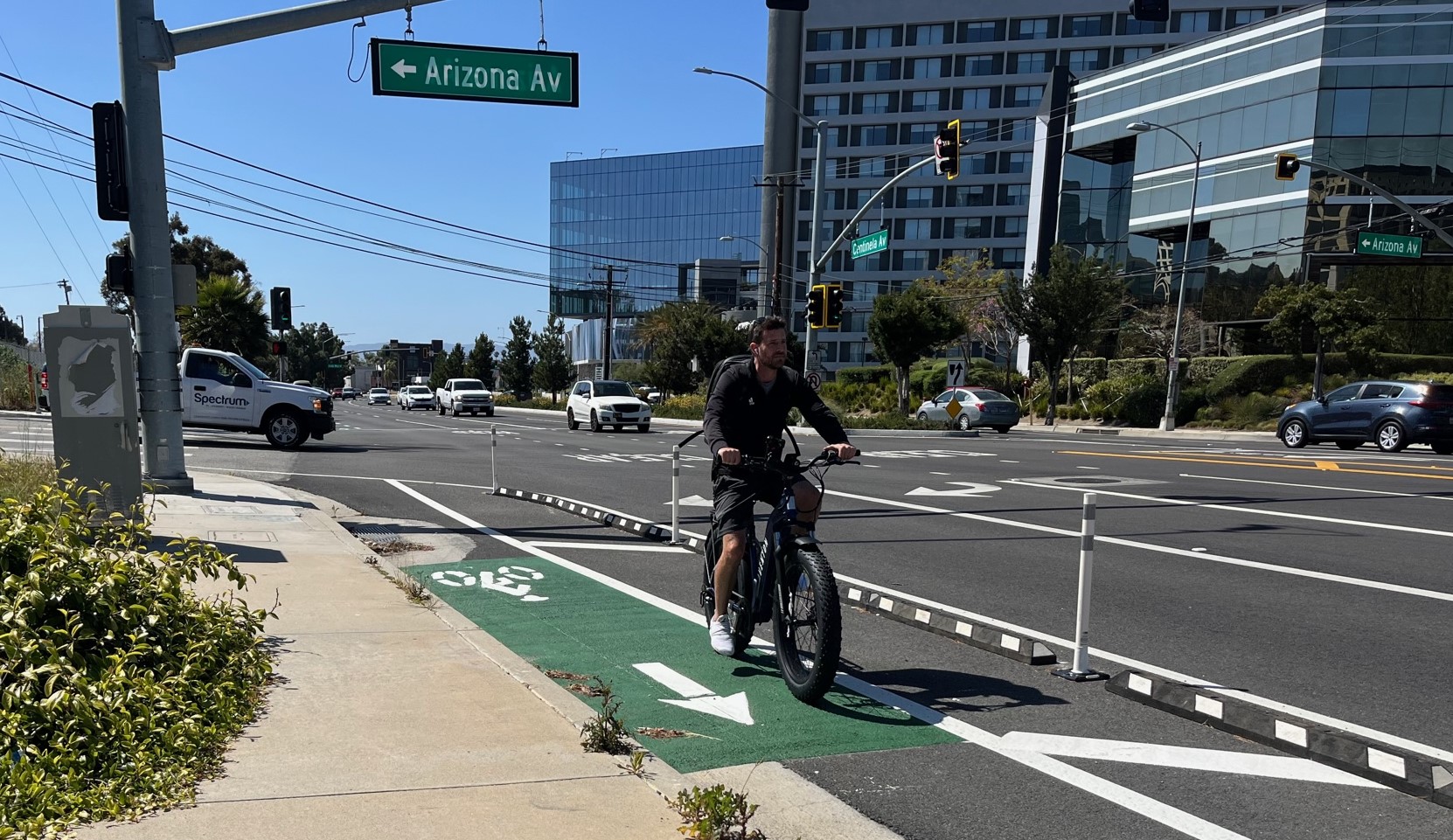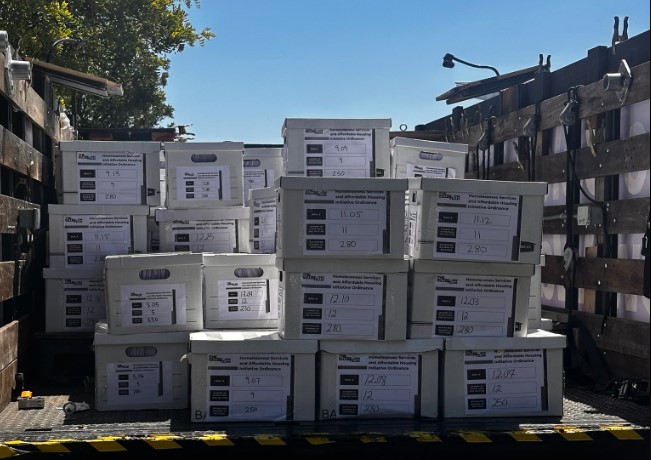At its monthly meeting today, the Metro board of directors took a couple of important early steps toward electrifying the agency's bus fleet. The board approved electric bus purchases that will run on the Orange and Silver Lines as an initial proving ground. These lines are planned to be fully electric by 2020 and 2021, respectively.
As Streetsblog reported earlier, in June Metro staff presented their plan to electrify the 2,500 Metro bus fleet by 2030. Metro staff were skeptical of the current electric bus technology available today, so despite planning for distant electric future, the agency will rely on compressed natural gas (CNG) buses for the near future.
This month the board approved three bus contracts:
- $67.7 million contract for 65 articulated CNG buses manufactured by New Flyer (board report)
- $60 million contract for articulated electric buses manufactured by New Flyer - for the Orange Line (board report)
- $47.8 million contact 60 electric buses manufactured by BYD - for the Silver Line (board report)
Last month the board approved the largest in this year's crop of bus contracts, $203.6 million contract for 295 CNG buses manufactured by El Dorado National (board report).
As it was in June when the item was postponed, the electric articulated bus contract was a contentious discussion, with the board room packed with yellow-shirt-wearing BYD workers testifying to the importance of local jobs. Metro staff's evaluation process selected New Flyer over BYD, despite a $10 million cheaper price and a commitment to over a hundred jobs at BYD's Lancaster factory. New Flyer manufactures just outside of L.A. County in Ontario (which qualifies as local hiring as it is inside California), as well as in St. Cloud, Minnesota. Metro staff have a longer history of successful contracts with New Flyer, hence ranked the manufacturer higher on technical compliance, project management, and experience and past performance.
Metro directors Ara Najarian, Janice Hahn, and Hilda Solis attempted to override the staff recommendation and steer the $60 million contract to BYD. Their motion failed on a 3-6 vote (with directors Kathryn Barger, Robert Garcia and Eric Garcetti not voting due to conflicts.) An initial motion to approve the staff-recommended contract with New Flyer failed on a 6-3 vote, as it needed seven votes to pass. At that point, Garcetti, an avid electrification supporter who had been trying not to appear to take a side between reputable electric vehicle manufacturers (despite his three board appointees - Jacquelyn Dupont-Walker, Paul Krekorian and Mike Bonin - all supporting New Flyer), stepped in to make the vote 7-3, approving the New Flyer contract.
In addition to the contracts, the board approved a motion endorsing staff's plan to fully transition to electric buses by 2030. The motion included forming a "zero emission bus infrastructure working group," modifying Metro's lobbying to push for better inclusion of local jobs in procurements, and prioritizing in equity in deployment of electric buses to underserved communities.
There was a surprising amount of testimony against endorsing Metro's transition to electric, mostly from CNG interests who cited their "near-zero" technology as "better than zero" and questioned the greenness of how L.A. electricity is generated. Numerous others testified in favor of electrification, including a representative of the Union of Concerned Scientists whose recent report shows that electrification has significant environmental benefits "even on today's grid."
Ultimately the board unanimously affirmed the agency's commitment to eventual electrification.





